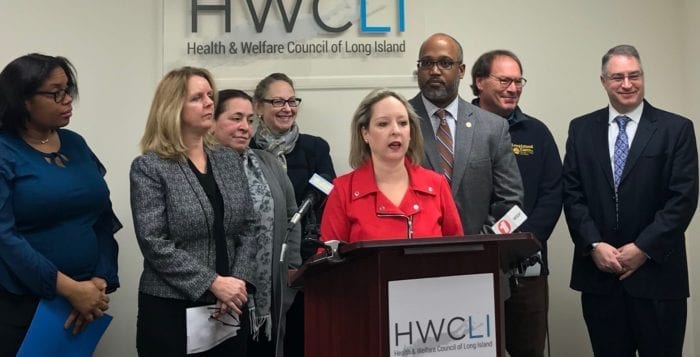By Vivian Viloria-Fisher
New York State lawmakers are moving forward with a number of progressive changes to our election laws. Democrats are to be commended for keeping the promise they made to New Yorkers to make it easier for all of us to exercise our right to vote.

But Albany has not yet addressed fusion voting. New York state is only one of eight states where fusion voting occurs. Voters come across fusion voting or cross endorsements when they enter the ballot box and see a candidate’s name on several lines on the ballot. This occurs most often in judicial races: candidate Jane Doe is on the Republican, Democratic, Conservative, Independence, Working Family and possibly other lines. The voter might ask herself, “What difference will my vote make?” Good question, since cross endorsements generally take the choice out of the hands of the voter and into the hands of party leaders.
In 2010 Suffolk County Clerk Judith Pascale (R) and county Comptroller Joseph Sawicki (R) both won their re-elections with 100 percent of the vote. In 2013, Sheriff Vincent DeMarco (C), county Treasurer Angie Carpenter (R) and Suffolk’s District Attorney Thomas Spota (D) all achieved remarkable victories by garnering 100 percent of the public’s support. Of course, the support came from the backroom deals that agreed to put the officials’ names on the Republican, Democratic, Conservative and Independence party lines. Pascale repeated this feat in 2014.
Fusion voting created a Suffolk County government in which five of the six countywide positions were held for eight years by individuals who had been selected, not elected. This begs the question as to who was watching the proverbial store when both the treasurer and comptroller were beholden to party bosses or whether justice was being served when both the sheriff and district attorney — who later left office under a cloud — were ordained in backroom deals.
Minor parties gain a disproportionate amount of power by doling out their lines for patronage jobs or other political favors. Most egregious among these is the Independence Party that has no identifiable platform, and whose ranks are filled with people who believe that they have registered as Independent — unaffiliated voters only to later discover that they are part of a party.
Voters are often perplexed as to some discordant alliances reflected on the ballot. How is a Democrat endorsed by the Democratic and Conservative parties? Candidates waffle on important issues that define the basic values of the party in which they are registered in order to get on the line of a third party.
We focus our attention on the corruption and disenfranchisement on the national level, but we should not forget that all politics is local. Because of fusion voting, there is a disproportionate number of Conservative judges in Suffolk County, relative to the number of Conservative party members in the general public. In the 2018 Supreme Court 10th Judicial District race, all seven victors names appeared on the Democratic line: the top three vote getters on the Democratic and Republican lines, the next four on the Democratic, Conservative and Independence lines. Given the challenges to democratic values that our nation faces in the nominations of even more conservative judges to the U.S. Supreme Court, it is mind boggling to know that local party leaders align the Democratic and Conservative parties on the ballot of the 10th Judicial District.
I have voiced my concerns about cross endorsements for many years, but now is the moment that leaders and elected officials must be held accountable and must be pressured to put an end to this deceptive practice. Let your members on the New York State Assembly and Senate and Gov. Andrew Cuomo (D) know that fusion voting is contrary to our democracy’s basic tenet of a citizen’s right to vote.
Vivian Viloria-Fisher was a Suffolk County legislator 1999-2011. She ran unsuccessfully for Congress in 2018 in the Democratic primary for the 1st District.




















































